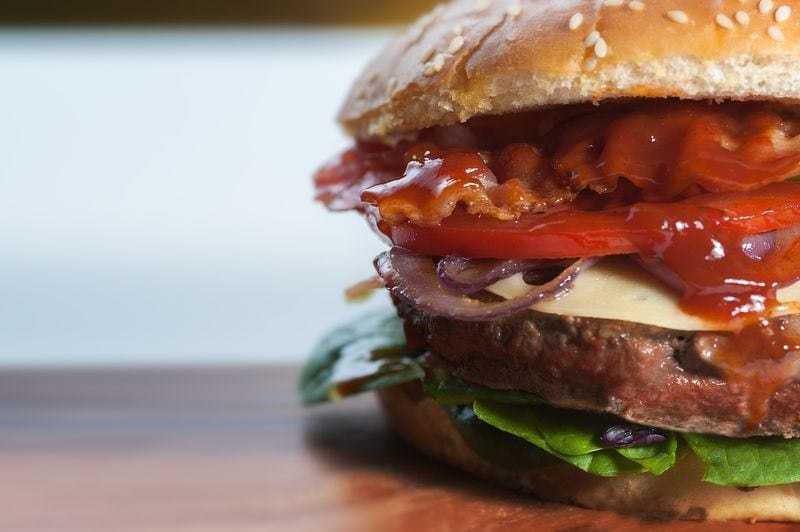A World Health Organization study concluded that people who eat larger amounts of ultra-processed foods have a 9% higher risk of suffering from two deadly diseases. However, consuming other subgroups of these foods could reduce the risk. What are these foods?
Addiction to ultra-processed foods (UPF) has become a public health problem and a growing concern in contemporary society. These products, characterized by their high content of saturated fats, added sugars and additives, have flooded supermarket shelves. and fast food menus, generating an addiction that goes beyond a simple preference for its flavor.
This in turn has triggered levels of obesity, which go hand in hand with high consumption of ultra-processed foods. Chile is one of the countries most affected by this health crisis in Latin America and has the highest rates of obesity. According to data from World Health Organization (WHO) 28% of adults and 14% of adolescents in Chile were living with obesity in 2016, and these figures are estimated to increase to 36% and 17%, respectively, by 2030.
A new study prepared by the WHO International Agency for Research on Cancer and the University of Vienna examined the consumption of ultra-processed foods and multimorbidity or the coexistence of two or more chronic diseases such as cancer, heart disease and type 2 diabetes.
UPFs are defined in the report as industrially manufactured products comprising deconstructed and modified food components recombined with a variety of additives. UPFs are typically mass-produced packaged breakfast cereals, biscuits, reconstituted meat products, instant noodles, and soft and/or sugary soft drinks.
Their findings show that Eating UPF in large quantities increases the risk of cancer and diagnosis of cardiometabolic multimorbidity (a group of diseases that include type 2 diabetes, heart disease and stroke). However, they also discovered that some ultra-processed foods are good for your health.
The researchers said that “eating more ultra-processed foods, particularly animal products and sugary drinks, was linked to an increased risk of developing cancer as well as another disease such as stroke cerebral or diabetes,” said Helen Croker, deputy director of research and policy at the International Cancer Research Fund who funded the study, in a press release.

WHO study finds two ultra-processed foods may be good for your health
But bread and cereals actually reduce the risk of suffering from it because they are a rich source of fiber despite being UPF, the study concludes. . In fact, several of these foods that were previously considered harmful have been endorsed by researchers, including sweets and desserts, convenience foods, salty snacks, and plant-based alternatives to meat products. “They are not associated with a risk of multimorbidity,” specify the authors.
However, the researchers’ conclusion remains the same as that supported by science: ultra-processed foods harm human health and increase the chances that a person who consumes a lot of them will suffer a life-threatening event, such as a heart attack or a stroke. stroke. But they detail which foods increase risk and which do not.
“Our study highlights the importance of ensuring universal access to fresh, less processed foods” said the study’s lead author, Reynalda Córdova, a doctoral student at the Doctoral School of Pharmaceutical, Nutritional and Sports Sciences in Vienna, in a statement.
Some ultra-processed foods could be good for your health
The study, published in the journal The Lancet, collected dietary information from 266,666 men and women from seven European countries (60% women). Participants did not have cancer, heart disease, or type 2 diabetes at the time of recruitment.
Using questionnaires, asking people to recall their food and drink consumption history over the past 12 months, the experts classified foods according to the Nova food classification system, which contains more than 11 000 food products and goes beyond nutrients, it also analyzes how food is made.
The researchers followed the participants for 11 years, resulting in an average UPF intake for men and women of 413 g/day and 326 g/day respectively, meaning that 34% of men’s daily calories came from the UPF and 32% of those from the UPF. a woman.
Results revealed that 4,461 participants (39% women) developed multimorbidity due to cancer and cardiometabolic diseases. , such as stroke and diabetes. The analysis showed that people who consumed larger amounts of UPF they had a 9% higher risk of having two diseases.

“Among the subgroups of the UPF, associations [con problemas de salud] They were most notable for animal products and artificially sweetened and sweetened drinks. Other subgroups, such as ultra-processed breads and cereals and plant-based alternatives, were not associated with risk,” the authors said.
The researchers said their study differentiated between different groups of ultra-processed foods, emphasizing that “it is not necessary to completely avoid ultra-processed foods; instead, you should limit your intake and favor fresh or minimally processed foods,” said Heinz Freisling, an expert from the World Health Organization’s IARC cancer research agency who participated in the study.
The report highlights the scale of consumption of ultra-processed foods which has increased worldwide and “now accounts for between 50% and 60% of daily energy intake in some high-income countries, and low-income countries intermediate and weak follow suit.” .”
The recommendation for preventing cancer is to limit ultra-processed foods high in fat, sugar and starch, as well as avoid processed meats such as hamburgers and sausages and Eat plenty of vegetables, fruits, legumes and grains.
Source: Latercera
I am David Jack and I have been working in the news industry for over 10 years. As an experienced journalist, I specialize in covering sports news with a focus on golf. My articles have been published by some of the most respected publications in the world including The New York Times and Sports Illustrated.


